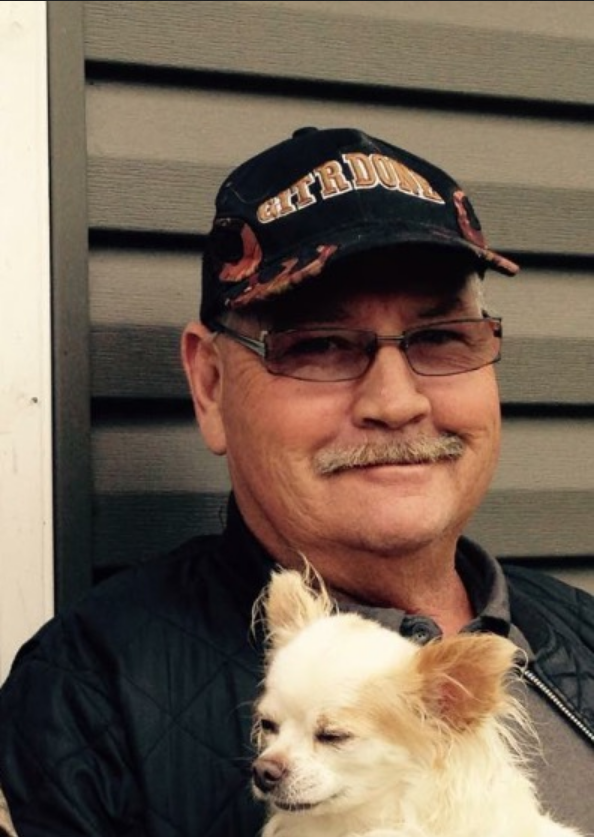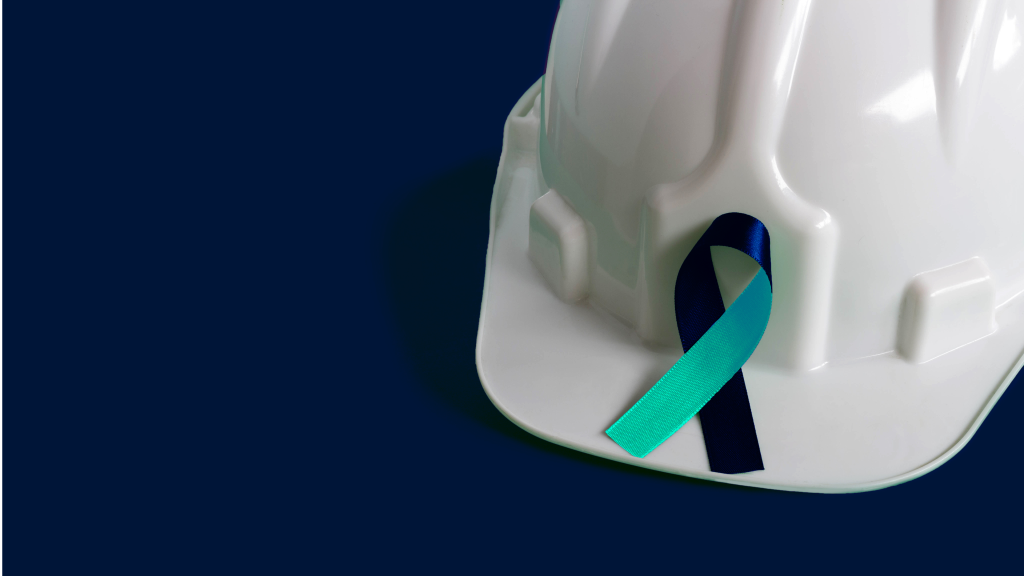Sept. 10 is World Suicide Prevention Day, with the month also being dedicated to suicide prevention. In anticipation of the day, the Daily Commercial News and Journal of Commerce reached out to those directly impacted by suicide as well as stakeholders who are trying to make the industry more inclusive by ridding the stigma that you can’t ask for help.
For Brenda Duhaime, every August conjures up painful memories.
It’s the month her husband Bob, a grader operator, took his own life after being bullied in the workplace.

Robert Duhaime, 63, died of a drug overdose on Aug. 31, 2017. The couple lived in Vawn, Sask. and Bob worked for the Rural Municipality of Parkdale.
After being harassed by co-workers about the condition of the dirt and gravel roads in the municipality, Bob took a leave of absence, his wife recalls. He returned to the job in August but after just two days, the bullying started again. He told his wife he was going to go and ask for more time off.
“He took his life instead of going there,” said Brenda. “He would say, ‘They’re not going to listen to me. I’m some guy complaining about two women and a man bullying me.’ He felt like nobody heard him at all. I heard him.”
“He asked everybody for help. He asked Worker’s Comp. He asked OH&S. He asked the Saskatchewan Association of Rural Municipalities. He asked the health and safety people at work. Nobody listened to him. Nobody took it seriously.”
It was Bob’s job to maintain the roads but snowstorms and heavy rain that year had made it difficult. The harassment occurred daily, Brenda stated. He would get calls as early as 5:30 a.m. and as late as 11 p.m.
“On Easter weekend we had a lot of really wet snow,” recalled Brenda. “That’s the weekend it really started. It was such a wet spring, making it impossible to really maintain gravel roads. Someone asked Bob to do something with the road and he said, ‘I can’t grade mud, there is nothing you can do.’”
They hoped when he returned to work after stress leave things would be different.
The week he took his life, Bob told Brenda to go to Saskatoon with her daughter. Their grandson was attending hockey camp for a week.
“I was on the phone with him that night and he said he was going to go in the next day and tell them that he needed more time,” Brenda said.
When she tried to call him in the morning his phone was off.
“When I couldn’t get ahold of him I thought ‘there is something seriously wrong here,’” Brenda recalled. “He told me that he would call me at coffee time the next day and let me know how the meeting at work went.
“I called my sister to go and check the house…I told her where the key was and she got someone to go in with her. She thought he was just sleeping. I said wake him up and she said, ‘I can’t.’”
Bob had overdosed. He was airlifted to a hospital in Saskatoon. The following day, the family made the decision to unplug the machines keeping him alive.
Although Bob suffered from anxiety and had been seeing a psychiatrist since 2005, Brenda said he never attempted suicide before and there was no indication from his psychiatrist or his family that he would take his own life.
“I don’t feel like I had any real clear signs that I could have prevented this other than staying home when he encouraged me to go to Saskatoon with my daughter,” said Brenda.
Since her story came out in national media outlets, Brenda received 300 messages from people being bullied at work.
“I feel I need to be Bob’s voice for as long as I can,” she said.
Construction workers need support
Sept. 10 is World Suicide Prevention Day but it doesn’t mean anything unless there are supports in place to help members, said Carmine Tiano, director of occupational health services with the Provincial Building and Construction Trades Council of Ontario.
There is a exorbitant amount of workers in the construction trades that have substance and opioid use problems, but that is a symptom of the bigger problem of mental health. The building trades is doing more to address the problem and provide support for its members, Tiano said.
“When you deal with suicide, substance use or any type of disorder, the issues to fix it, yes it may be medical but a lot of them are societal, a lot of them are workplace issues that we need to deal with,” he said.
A lot of people don’t reach out for help because there is a stigma and a fear that they will be blacklisted.
“There needs to be appropriate measures at the workplace. When you are doing your toolbox talks, tell them, ‘it’s OK if you have a problem, here’s where you reach out. By reaching out doesn’t mean you’re going to get blacklisted…Here are the supports, here is where you need to go.’ That’s the kind of thing that we need to do.”
Understanding suicide and addressing the stigma
While suicide is a difficult topic to discuss it’s important to understand it and how to play a role in preventing it if possible, said Paula Allen, global leader and SVP, research and total wellbeing at LifeWorks, which offers individual, social, financial and mental wellbeing as well as employee support consultancy.
Individuals who know someone who has died by suicide often think they could have done something to prevent it.
“Suicide is the result of extreme despair and extreme pain related to mental health,” Allen explained. “Even if you are a health professional it’s not always possible to prevent that outcome.”
One of the things organizations, society and individuals need to address is stigma.
“When people start talking about suicide, when they start being obsessed with death…that’s the later stages,” Allen explained.
“Before that you can start seeing changes in peoples’ behaviour, like more withdrawn, reckless and using alcohol and drugs more…But right from the very beginning one of the things when people feel mental distress, we more often than not keep it to ourselves, we more often than not, because of stigma, don’t reach out for help early.”
It’s important for organizations to know how to handle these situations.
“We want to make sure that people who are suffering don’t feel that sense of isolation, that there is dialogue that talks about mental health in a way that isn’t stigmatizing, that there are reminders around the services that are available, that there is that opportunity for early intervention before people start feeling that sense of intense pain and hopelessness,” said Allen.
LifeWorks is hosting a webinar on Depression and suicide: Creating hope through action today (Sept. 7) with Mark Henick.
His TEDx talk, Why We Choose Suicide, is among the most watched in the world.
Follow the author on Twitter @DCN_Angela.











I found this article and it grabbed my attention, I myself was in the building trades and manufacturing trades for 40 years in both the U.S. and Canada.
When I was in the states for 20 years I was constantly harassed about being from Canada, often called a “Mexacanadian” and job thief. I was also accused of being a Communist many times.
Then when I came back to Canada in my mid 40’s and started working in Ottawa as a construction manager I was treated absolutely cruelly by our
contractors and builders. I was yelled and screamed at by both my employer and their customers, I was threatened with bodily harm and property damage to my vehicle on a daily basis, one site super on a 28 story tower I was managing threatened to have me thrown off the roof if he didn’t get what he wanted when he wanted it. I was harassed by email and phone calls even on Sundays and late into the evening.
I too regularly was depressed and even scared to go to work and considered suicide many times.
I have never been treated so cruelly and disrespectfully in my life by co workers and administrators.
The construction and manufacturing trades in Canada are like working in a mine field.
Once the project ended I left my lifelong career of 40 years and never returned to my occupation, I moved out of the city to country acreage and now own my own dog boarding kennel and work with actual animals now instead of animals pretending to be humans.
Construction in Ottawa is a cesspool of abusive bullies and I tell all the young people that ask me what trade to get into to stay the heck away from the building and construction trades.